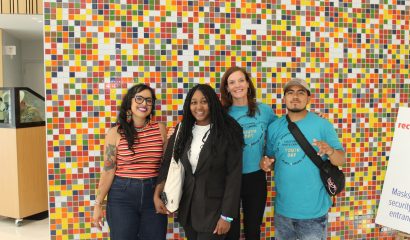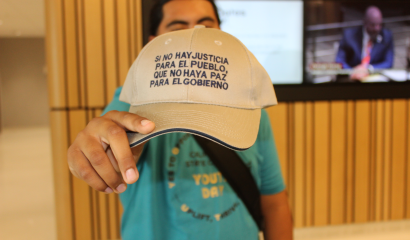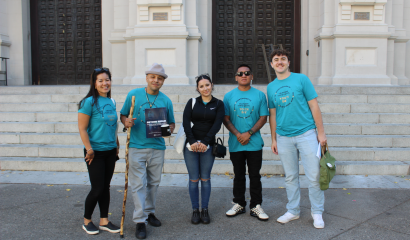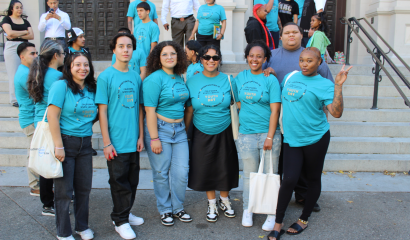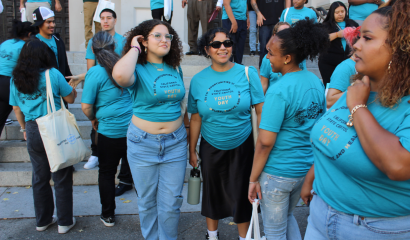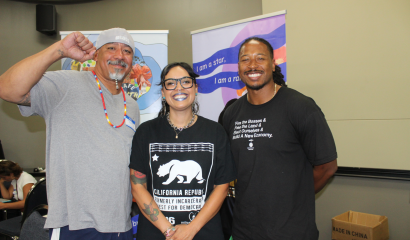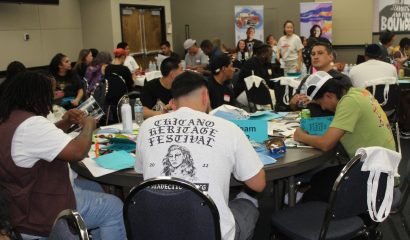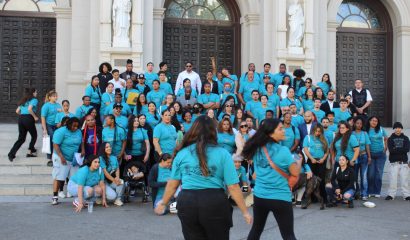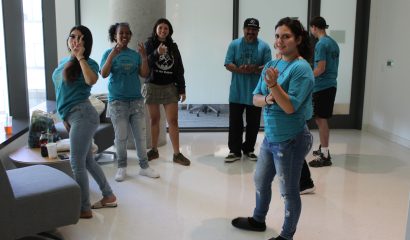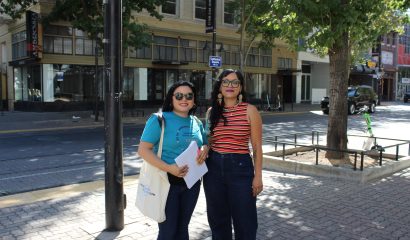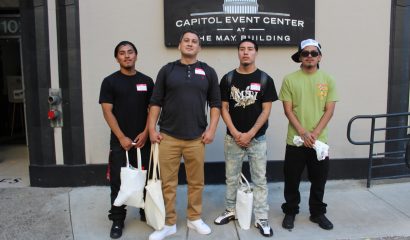Recently, our CJCJ policy team attended two important events at the state Capitol. In August, we joined over 140 community members from across California to take part in Y.O.U.T.H day, which stands for Yes to Opportunities to Uplift, Thrive, and Heal, reflecting its two-day, youth-centered themes.
On June 30th, 2023, California made history by closing its failed youth state prison system, formerly known as the California Youth Authority (CYA)/ the Division of Juvenile Justice (DJJ). This closure set into motion a vision for juvenile justice focused on the well-being of the young person, and how they can best be served closer to their families and the communities they live in. This vision requires collaboration among community stakeholders, legislators, and continued support from state policymakers. Y.O.U.T.H. Day was an effort to uplift and celebrate recent victories in juvenile justice while also highlighting the ongoing needs to support a California without a youth prison system.
Y.O.U.T.H. Day at the Capitol
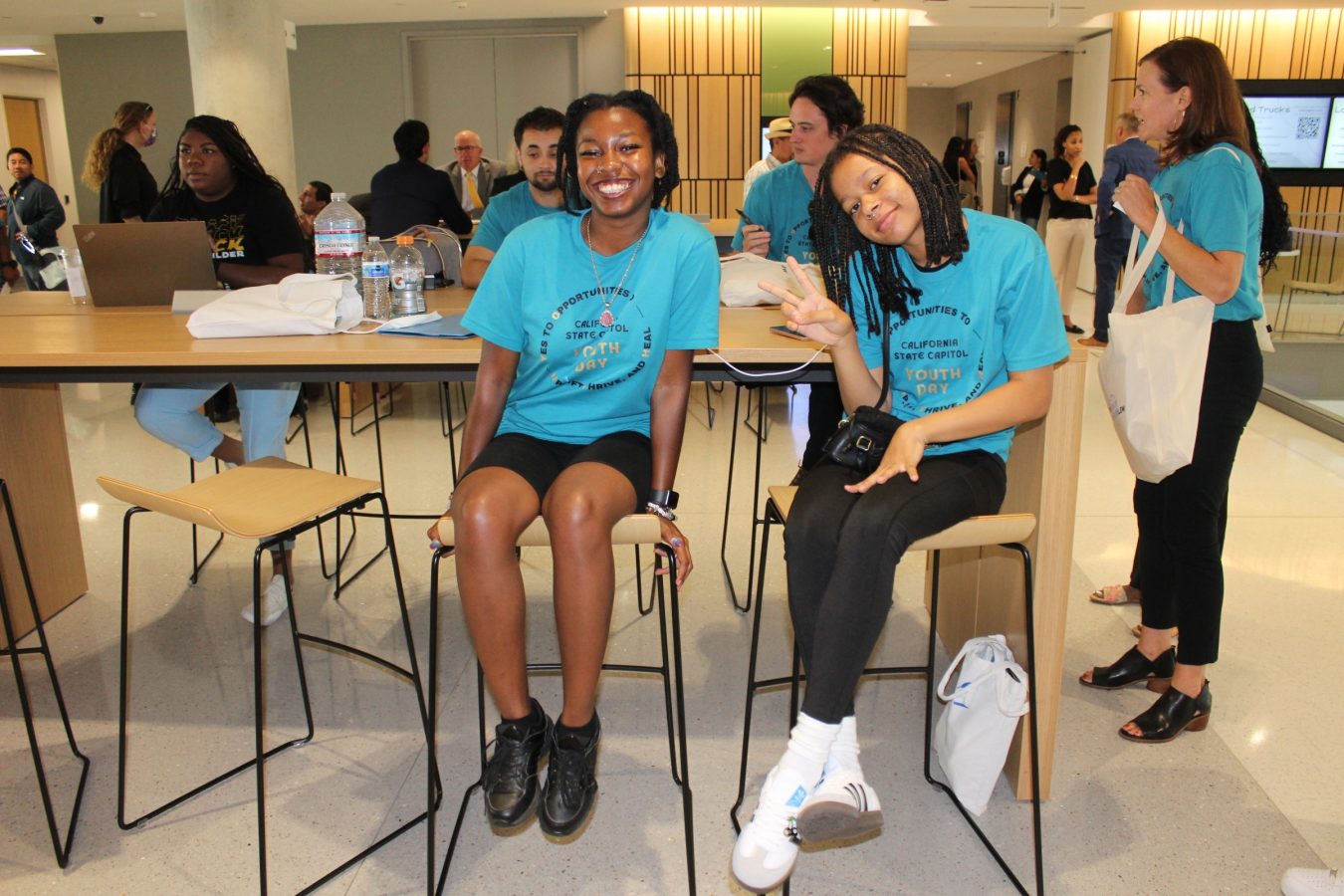
Collective Voice
Our collective voice at Y.O.U.T.H. day emphasized that to fully realize the changes initiated by the closure of DJJ, California must take the following actions:
Expand the use of Less Restrictive Programs (LRP’s):
Judges should be empowered to transfer youth from Secure Youth Treatment Facilities (SYTFs) to Less Restrictive Programs (LRPs) when appropriate. When a judge assesses that a youth is ready, they can request a transfer to an LRP, allowing the youth to serve their time in a more supportive environment that fosters success within the community. The definition of an LRP is expansive and can include home-based programs and residential placements tailored to the individual needs of each young person. These programs prioritize a gradual transition into adulthood, emphasizing personal growth and community involvement. Currently, the options for LRPs options are limited, and the majority of resources are still directed toward carceral facilities. To address this gap, California must invest in building a comprehensive continuum of community-based options, so that youth have access to LRPs that promote positive youth development rather than confinement.
Provide Judges with Guidelines for 6‑month Review Hearings:
A new tool exists to incentivize youth engagement and progress through a 6‑month review hearing and confinement reduction process. However, its implementation and application is inconsistent throughout the state. To address this, the California legislature needs to provide clear guidelines for judges to ensure that principles of positive youth development are consistently applied in these hearings.
Improve Conditions for Youth Inside of Secure Youth Treatment Programs (SYTF’s):
Most SYTFs are currently located within county juvenile halls, which were never designed nor intended for long term incarceration. To foster a healing-centered approach, long-term solutions are essential. In the interim, the state must implement immediate improvements, such as increasing the use of credible messengers and enhancing programming with continuity, to ensure meaningful connections to mentors, family, and loved ones.
Individualize the Approach for Youth:
State law mandates an “Individualized Rehabilitation Plan” (IRP) for youth committed to an SYTF. This plan must prioritize and center the involvement of both youth and their families in setting goals. However, more work is needed to ensure that these plans are realistic and adequately supported to assist youth and their families effectively.
We took our message to the Capitol with legislative visits to amplify our hopes for California’s juvenile justice system. Voices represented in the space included community members with direct experience in the juvenile-justice system, their family members, and those working alongside them for youth justice and community investment over systems of punishment. Young leaders in attendance played a significant role in planning and coordinating the event.
Those in attendance included partner agencies from throughout the state, along with our All Youth Are Sacred fellows, who had recently been prepared for this moment by CJCJ and other partners the month before. Our policy analyst, Grecia Reséndez, showcased her leadership skills by prepping and coordinating the legislative visits for her team. In the spirit of intergenerational advocacy, she also brought her young son for his first opportunity to engage at the state Capitol.
Thank you to all of the organizers and participants of Y.O.U.T.H. day! We look forward to making this an annual event to further our vision for the future of youth justice in California. You can learn about our second event a the Capitol here.

